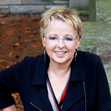The Spectre of Book Banning
I remember watching reruns of The Dick Van Dyke Show on television when I was younger and thinking how silly it was to show Rob and Laura Petrie sleeping in twin beds. Clearly they’d had sex in order to have their son Ritchie, but the show was produced while the Hays Code was still in effect, which meant pretending that somehow the boy had been magically conceived without getting down and dirty.
The Hays Code, named after Will H. Hays, who was the president of the Motion Picture Producers and Distributors of America from 1922 to 1945, was a knee-jerk reaction to several notorious scandals in Hollywood in the 1920s. The biggest of these was the alleged rape of starlet Virginia Rappe by the enormously popular movie star Roscoe “Fatty” Arbuckle at a party he hosted.
Virginia had become ill at the party and died four days later. One of her friends accused Arbuckle of raping and accidentally killing her. After three trials, Arbuckle was acquitted and the third jury even gave Arbuckle a written apology. Despite that, Arbuckle’s films were banned by Hays, who’d become the motion picture industry’s censor, and the actor became a symbol of what various groups perceived as the growing debauchery in Hollywood and its effect on the ‘morals of the general public’. The scandal destroyed Arbuckle’s career.
Under Hays’s leadership, Hollywood was compelled to adopt the Production Code in 1930, and it was rigidly enforced from 1934 to 1968, even covering television production.
So, back to the on-screen illusion that couples, married or otherwise, didn’t actually sleep together and that kids were produced by some kind of spontaneous genesis. Apparently, by denying in the media that sex existed, people would then not engage in any. A strange concept of cause and effect.
The same principle today is being brought forth in book banning form – that what we can’t read about will just cease to exist.
This is Banned Books Week in the U.S., similar to our Canadian Freedom to Read Week in February, and there’s a lot of media coverage globally. I’m far from an expert on the subject, but here are my thoughts.
What is a book ban, exactly? Although technically it’s the removal of a book from a library’s collection, up to and including actual destruction, many people also point out that there may be books which are purposely never ordered.
Logistically, libraries simply can’t house every single book ever written. But the idea that small groups can force a library to remove a book over the wishes of thousands of other people is disturbing.
Here’s how a book ban comes about:
A specific title is challenged on the basis of its content. It doesn’t just have to be at a library – challenges take place within entire school districts, at institutions, retailers, publishers, etc.The book in question is pulled from access for a review period, which could take months.Sometimes the book is banned, other times put back into the collection.Why are books challenged? According to the American Library Association, by 2020 the top ten reasons were:
sexual content (92.5% percent of books on the list)offensive language (61.5%)unsuited to age group (49%)religious viewpoint (26%)LGBTQIA+ content (23.5%)violence (19%)racism (16.5%)use of illegal substances (12.5%)“anti-family” content (7%)political viewpoint (6.5%)As you can see, there’s a lot of attempted censorship around things that we know actually take place, but are seemingly afraid to acknowledge.
I haven’t read most of the books in the top banning lists to be able to comment on their contents (books like To Kill a Mockingbird and The Handmaid’s Tale). But surely ignoring parts of our collective history or potential future is unhealthy, and ultimately dangerous.
I don’t have children, but I understand that parents want to keep an eye on what their children are consuming. I list my own novels as suitable for 18+ based on some violence/horror and sexual content. However, when parents ask me at live events, I always recommend that they make their own decision based on what they know of their own kids.
My novels also include ‘diversity, equity and inclusion’. What’s wrong with that? Isn’t that the way life should be?
What does it matter that someone has a different religious viewpoint than us? Or a different sexual orientation?
I can’t even begin to understand how it must be to feel that you’re in the wrong body gender, but plenty of people don’t know what it’s like to have fibromyalgia, as I do, so who are we to invalidate another’s experience? And aren’t books that illuminate our differences to others beneficial, to spread understanding?
There’s a place in this world for all of us. But there’s no place for oppression or intolerance, both of which keep rearing their ugly heads no matter how much we think we’ve progressed. Can we ever get past them?
Banning books is a way of exterminating ideas.
To learn more about book banning in Canada, I recommend this article in The Walrus.



